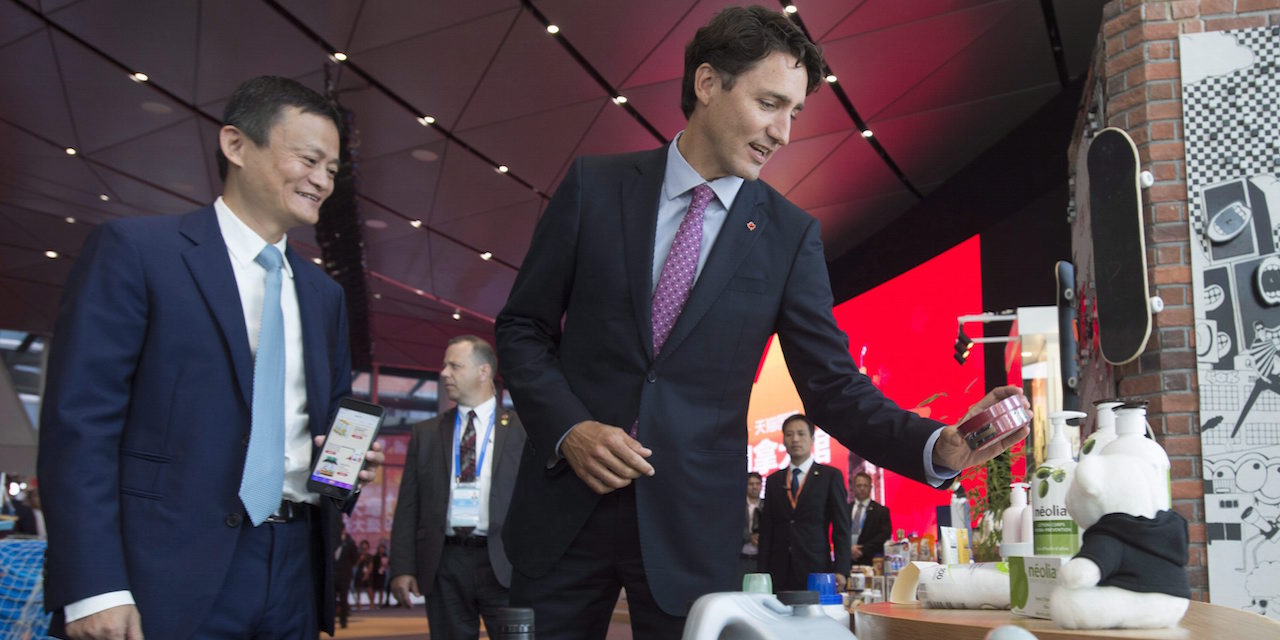Canadian merchants and marketers are expected to soon have their own online storefront to sell their goods to the vast Chinese marketplace via the e-commerce giant Alibaba.
Prime Minister Justin Trudeau attended the launch of a Canadian “pavilion” of Alibaba‘s Tmall platform Saturday during his trip to China.
Billionaire Jack Ma (pictured left), Alibaba’s founder and chairman, joined Trudeau for the event. The launch promoted Alibaba’s offer of providing access to China’s rapidly expanding middle class that now comprises some 300 million people.
The new pavilion will open the doors for Chinese consumers to buy products from Canadian companies online. Alibaba is the world’s largest e-commerce platform.
Ma, one of China’s best-known entrepreneurs, told the business crowd that Canada offers top-quality and healthy agricultural products and commodities as well as high tech, environmental tech, music, art and culture.
“These are exactly the types of products Chinese people want and need,” said Ma.
Experts believe Alibaba has a lot to offer Canadian merchants.
Dominic Barton, the global managing director of consulting company McKinsey & Co., said in a recent interview that Alibaba has done tremendous things for China by allowing small mom-and-pop companies there to do business with the rest of the Asian country.
“I think it’s been revolutionary good, if I could call it that, from that point of view of just allowing small companies to participate in a big market,” said Barton, a global expert hand-picked by Ottawa to help lift Canada’s lacklustre growth.
“And in my view, there’s no reason why you can’t extend that out to (small and medium-sized enterprises) in other parts of the world.”
Alibaba has launched Tmalls in about a dozen countries, including Korea, Australia and the United States.
Other observers are not so sure that it will help Canadian firms.
Alex He, a research fellow at the Centre for International Governance Innovation think tank, said Ma has been very active in trying to sell his business model to the whole world as a way to help midsized and small businesses.
“And at the same time, he can make money from that,” He said.
He noted that Alibaba has come in for criticism in China that the model allows for the sale of fake goods, which can be very difficult to return.
“Jack Ma’s model is very successful, I’m just not sure if they can succeed outside of China.”
Finance Minister Bill Morneau, who is travelling in China with Trudeau, was asked about Alibaba’s potential for the struggling Canadian economy.
“Our overall goals here are to expand our opportunities together, so we’re keenly interested in hearing about any business that’s looking to expand their footprint,” Morneau said Friday in Shanghai.











